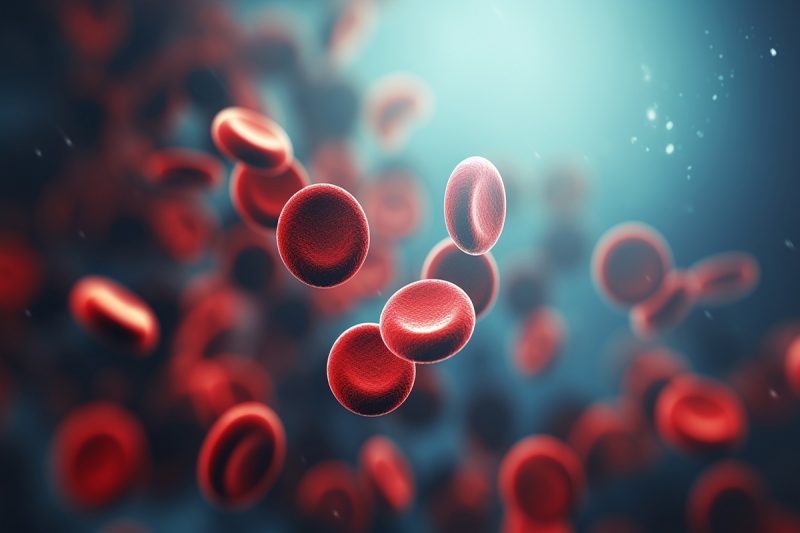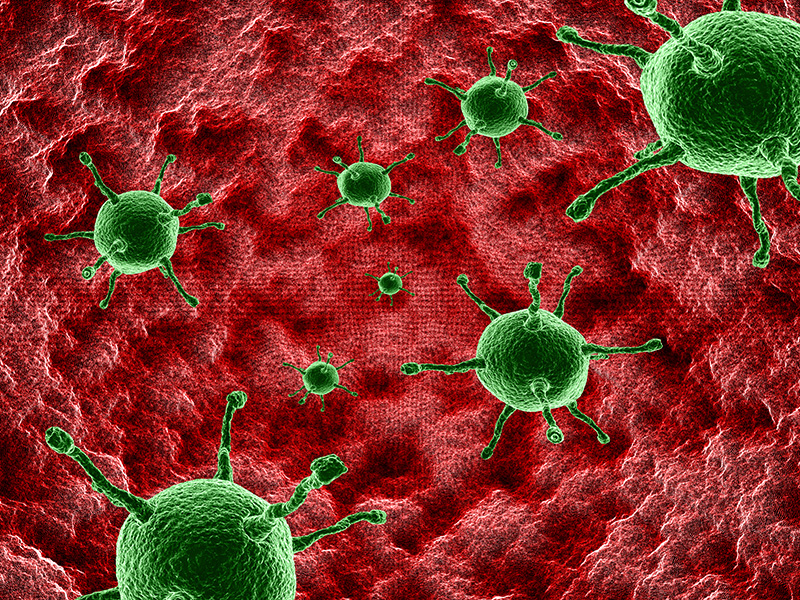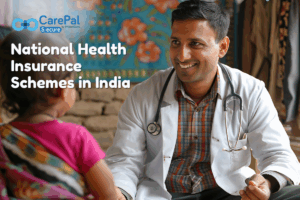Blood Cancer: Understand Causes,
Symptoms & Treatment

Blood Cancer impacts the body’s ability to produce and use blood. This usually is a cancer of the white blood cells but can impact other blood cell types as well. A common misconception about blood cancer is that it is just a single type of cancer. There are more than 100 different types of blood cancers. Most of these are types of Leukemia, Lymphoma and Myeloma, but the term “blood cancer” also includes other conditions such as myelodysplastic syndromes (MDS) and myeloproliferative neoplasms (MPN).
India ranks third highest in number of blood cancer cases reported globally. As per the Globocan Report 2022, every 5 minutes one person is diagnosed with blood cancers. Leukemia is the most common type of blood cancer in India. The cure for blood cancer often involves stem cell and bone marrow transplants from a matching donor. However, 70% of people in need of bone marrow transplants cannot find a matching donor. Only 0.09% of the Indian population is registered as a stem cell donor. Increasing the number of stem cell donors is one of the surest ways to help blood cancers patients.

About Blood Cancer What is the cause of Blood Cancer?
While the exact causes of blood cancer are not fully known, it is believed that it emerges in a combination of genetic and environmental factors. The key risk factors which have been identified for Blood Cancer are:
1. Age: Blood Cancer is the most common cancer among children below the age of 15. It is also a major cancer for those above the age of 55.
2. Family History: Like many diseases, blood cancer has a genetic predisposition as well. Those with a history of having blood cancers in their family are at much higher risk than others.
3. Smoking and Alcohol consumption: Blood cancer also seems to have a very high relation to smoking and alcohol consumption by the individual.
4. Pollution: Pollution in air and water is increasingly becoming an important cause of blood cancers. Punjab, specifically the region of Malwa, has emerged as the cancer belt of India and experts believe that it is tied to the excessive pollution of groundwater by chemicals used in farming.
5. Exposure to hazardous substances: Exposure to hazardous substances, rare earth metal mining or exposure to benzene in the Oil & Gas industry is also linked to blood cancers.
What are the types of Blood Cancers?
There are more than 100 types of blood cancers. However, the five major types of blood cancers are as follows:
1. Leukemia is the cancer found in your blood and bones when there is a rapid production of defective white blood cells. These defective white blood cells can’t fight off diseases and infections, and their rapid production also interferes with the production of red blood cells and platelets. Leukemia is detected mostly in ages above 55 but is also the most common cancer for kids below the age of 15.
2. Lymphoma is a type of blood cancer in which Lymphocytes, a type of white blood cell used by the immune system of the body, are manufactured defective. These defective Lymphocytes start accumulating on the Lymph Nodes and other tissues and weaken the immune system of the body. Unlike Leukemia which starts in the bones, Lymphoma originates in the lymphatic system of the body.
3. Myeloma is a cancer where the body starts generating defective plasma cells. Plasma cells are a type of white blood cells which generate antibodies to fight diseases. Myeloma impacts this function and leaves the body vulnerable to diseases. Myeloma, like Leukemia, also originates in the bones.
4. Myelodysplastic Syndromes (MDS) is a cancer in which the blood cells produced by bone marrow don’t fully mature. Over time this leads to a high proportion of defective blood cells impacting the functioning of the blood. This also eventually leads to full-blown Leukemia and hence is also sometimes called “Pre-Leukemia” by doctors.
5. Myeloproliferative Disorder (MPD) is a cancer where there is an overproduction of blood cells by the body. These can be any of the blood cells; Red, White or Platelets. The overproduction happens only for one type of cell. It’s very rare for MPD to impact more than one type of blood cell. MPD is more common among men.
What are the symptoms of blood cancer?
Blood Cancer symptoms are not very specific and are often confused with cold, flu and general weakness. This means a lot of blood cancers cases are detected at an advanced stage. Hence regular medical screening and doctor’s advice become very important. Some of the symptoms of blood cancers that you should watch out for are:
1. Persistent coughing and chest pain due to a build up of abnormal blood cells in the spleen.
2. Frequent fever, flu or chills due to white blood cells not being able to function properly.
3. Unexplained Rashes, Bleeding or rashes due to defective platelets not being able to clot the blood properly.
4. Loss of appetite, weakness, shortness of breath and nausea due to blood cancers induced anemia.
5. Itchy skin and painless nodes in neck, groin and armpit region
As we discussed these symptoms are not very definitive and require screening and medical advice to determine if they are due to blood cancer (or any other cancer) or a mild illness. If the symptoms last more than 2-3 weeks you should see your doctor.
Is blood cancer curable?
Due to rapid advancements in technology, blood cancers, particularly if identified early, is curable to a certain extent. The efficacy of the cure depends on factors like the stage and type of cancer, and the age and health of patients. Overall, 5-year survivability rate for blood cancers in India is 66%. The common treatments for blood cancers are:
1. Chemotherapy for blood cancer uses drugs inserted into the bloodstream to kill the cancerous cells. Chemotherapy is administered to patients both in the form of tablets and direct IVF. Chemotherapy is done in cycles spread over a few weeks to months. Individual Chemotherapy sessions can range from a couple of hours to an entire day. While chemotherapy is effective in killing cancerous cells, it also kills healthy cells in the body. Hence there are often side effects to this treatment. Most of the side effects of chemotherapy are temporary and disappear after chemotherapy sessions are stopped.
2. Stem Cell transplant replaces damaged stem cells producing defective blood cells with new healthy stem cells. The stem cells can be taken either from the patient himself (Autograft) or from donors (Allograft). The basic procedure for stem cell extraction involves taking the bone marrow of the donor/patient and then harvesting stem cells. Stem Cell transplant is an expensive and painful process and is used when chemotherapy fails. It is therefore often called the “Plan B” treatment. However, with advancements in stem cell research, the risks and costs of harvesting stem cells are dropping. Therefore, it is seeing an increasing adoption in blood cancer treatments.
3. Wait and manage: Blood cancer has many types and categories. Some of the blood cancers develop slowly. For such cancers, depending on the age and health of the individual, doctors can sometimes decide not to go for painful and complex treatments immediately. Instead, they focus on managing the effects of blood cancers till the time the cancer develops to the stage that traditional treatment needs to begin.
Blood Cancer is a complex disease, the exact causes for which are not yet determined. Some risk factors like genetics are not even in control of the individual. However, improvement in medical technology has meant that chances of success in the fight against blood cancers are increasing daily. It is important to maintain a positive attitude and work alongside your doctors. That will give you and your loved ones the best chance to beat blood cancer.
Conclusion
Secure is designed to provide you and your family with comprehensive, accessible, and affordable healthcare solutions. Whether you’re an individual, a family, or a senior citizen, there’s a plan designed to provide financial security and peace of mind.
Some key reasons why you should choose CarePal Secure are:
Extensive Coverage: Get access to a wide network of hospitals for cashless treatments, covering everything from regular health check-ups to major hospitalisations.
No Waiting Period for Essential Coverage: CarePal Secure offers immediate access to essential healthcare benefits so that yCarePal ou can receive critical medical treatment without long approval delays.
24/7 Medical Assistance & Claims Support: Our dedicated helpdesk is available round-the-clock to assist you with medical emergencies, claim processing, and consultation bookings.
Teleconsultations & Healthcare Discounts: Our seamless teleconsultation services allow you to access specialists across 18+ medical fields. Additionally, you can enjoy significant savings on medicines, diagnostic tests, and outpatient care, making quality healthcare more affordable.
Affordable Plans with Super Top-Up Options: Choose from a range of budget-friendly plans for individuals, families, and seniors. Our super top-up policy for seniors provides additional financial protection, covering larger medical expenses at a lower cost.
Tax Benefits Under Section 80D: The premiums paid toward CarePal Secure health insurance are tax-deductible, helping you save money while ensuring comprehensive coverage for yourself and your family.
With trusted partners nationwide, CarePal Secure ensures that quality healthcare is always within reach. So what are you waiting for? Join 80,000+ satisfied customers who trust CarePal Secure for their healthcare needs.
Get in touch with us to know the right plan for you.












